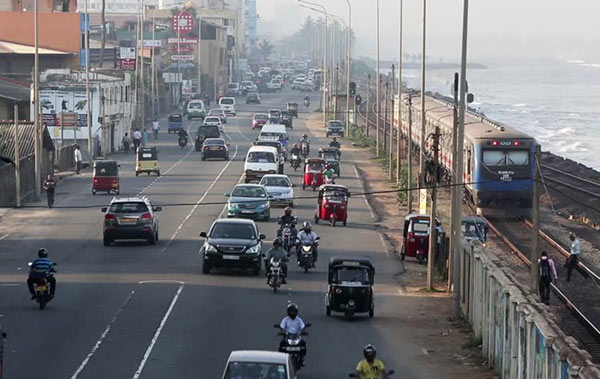Sri Lanka’s car-free day sparks debate over women’s safety

When Colombo’s mayor announced Sri Lanka’s congested capital would go car-free this Sunday to promote a “healthier” lifestyle, she might have expected a few grumbles from petrolheads.
But no one appears to have anticipated the furious backlash from women in the city, who say cars offer them much-needed protection from sexual harassment on the streets and on public transport.
A tweet from a journalist saying she could “barely walk 100 meters (110 yards) without some sick pervert or inbred idiot saying something perverted or stupid” unleashed a torrent of anger from female residents of the city over the plan this week.
Dozens of women backed the journalist, Marianne David, describing experiences from being ogled, cat-called and flashed at on the streets to being groped and masturbated upon in crowded trains and buses.
“Street harassment is kind of getting worse. I can’t walk 10 steps without being stared at or cat-called,” Pabasara Palletanne, a public bank employee, told the Thomson Reuters Foundation by telephone from Colombo on Friday.
Responding to the criticism, the office of the Colombo mayor, Rosy Senanayake, said she was working to addressing the issue of sexual harassment.
“Clearly it’s something that needs a sustained effort,” they said in an email.
A 2015 survey by the United Nations Population Fund (UNFPA) found nine out of 10 women and girls had faced sexual harassment on public buses and trains in Sri Lanka.
Misha’ari Weerabangsa, a graduate student, said it was “galling” that the car-free idea was spearheaded by two women – the mayor and the Dutch Ambassador to Sri Lanka Joanne Doornewaard.
“They fail to take into consideration the ground realities that are faced by commuters, especially women,” said Weerabangsa, who tweeted a series of incidences of sexually harassment she said she had suffered.
The Dutch embassy did not immediately respond to a request for comment.
Some responded angrily to David’s tweet, among them a former navy chief who told her to leave the country.
Randima Jayasinghe, spokeswoman for the UNFPA, said such a response highlighted “the patriarchal attitudes prevalent in societies” in Sri Lanka and urged women to report any sexual harassment they experienced.
A 2018 Thomson Reuters Foundation survey of 1,000 women in five of the world’s biggest commuter cities – London, New York, Mexico City, Tokyo and Cairo – found 52 percent cited safety as their top concern while using transport.
(Reuters)

Latest Headlines in Sri Lanka
- Indian PM Narendra Modi to visit Sri Lanka in early April 2025 March 15, 2025
- Sri Lankan President joins special Iftar ceremony at Temple Trees March 15, 2025
- Customs Inspector arrested for smuggling Rs. 30 Million cannabis oil March 15, 2025
- Police constable arrested for taking bribe to issue clearance certificate March 15, 2025
- COPE uncovers irregular NMRA certification process March 14, 2025


